Research Library
As part of our commitment to making our work and outputs accessible, and to generate further dialogue on the issues we explore, IICSI has created an online Research Library. Here you will find a range of pieces including films, articles, think pieces, and interviews. Please use the search function or browse, and check back again as this library will be updated regularly.
Research outcomes related to the Improvisation, Community, and Social Practice project (2007-2013) are forthcoming.
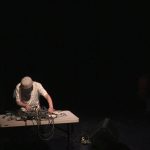
Triple Bill Interview & Performance, Open Ears Fest 2018
The Open Ears Festival 2018 featured a Triple Bill curated by Ben Grossman with performers: Ballantyne/Harms Duo, Sound of the Mountain, and Nakamura/Taxt Duo, about their practice and the role of improvisation in their work.
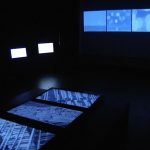
Organizing for Emergence
Drawing on the theoretical and philosophical discourses of Jane Bennett, Erin Manning, Brian Massumi and Timothy Morton, Teresa Connors proposes a series of thinking-in-the-making moves that considers the use of computer vision and data mining as co-creative and emergent devices within non-linear audiovisual installations.
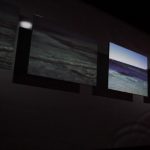
Currents interactive audiovisual installations at Sound Symposium XIX
Currents is one of several interactive audiovisual installations in development by IICSI postdoc Teresa Connors that explores the environment of Newfoundland. Emerging from a meshwork of materials that includes ocean data-sets, live streamed wind data, a heart rate monitor and audiovisual material captured off the east coast of Newfoundland, Currents combines these expressive actants to explore nonlinear processes within an immersive experience.

The Crossings Project – Exile, Exodus, and Transformation
Video documenation of THE CROSSINGS PROJECT – a community music and multi-media event and performed to a sold-out audience in Guelph on Saturday evening, May 26, 2018. The intention of this endeavour was to tell the story of the trans-Atlantic slave trade (approximately 1526 – 1867) and the subsequent establishment of a Black community in Guelph, Ontario.
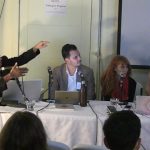
GJFC 2018 Roundtable – Improvisation in Music and Words
IICSI Researchers, Kevin McNeilly, Sara Villa, Rob Wallace, and Paul Watkins specializing in the intersections of music and words gathered at the Guelph Jazz Festival Colloquium 2018 to discuss the synergetic relationship of improvised music making and poetic composition.
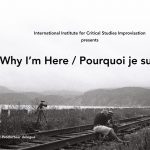
Pourquoi je suis ici / Why I’m Here (trailer)
In Why I’m Here, director João França provides a glimpse into a magical world where musicians of diverse ages and abilities come together in an inclusive and supportive environment to explore the possibilities of improvisational collaborations.
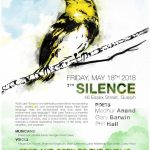
Wolf Lake Tones – highlights reel
Watch the highlights of Wolf Lake Tones – a night of improvisational exploration of the interconnection between the human and the non-human, between language and the environment that happened May 18, 2018 at Silence in Guelph.
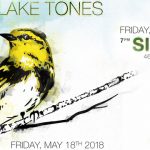
Wolf Lake Tones – full event documentation
On May 18, 2018 at Silence Guelph, poets Madhur Anand, Gary Barwin, and Phil Hall were joined by musicians David Lee (double bass), and Georgia Urban (saw), as well as singers Megan De Roover, Shannon Kingsbury, Brian Lefresne, Liane Miedema, Sue Smith, and Carey West (all as voices of birds), for an improvisational exploration of the interconnection between the human and the non-human, between language and the environment.
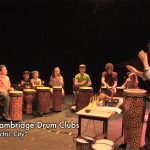
KidsAbility Drum Club Performance 2018
A short video documenting the culminating performance of the 2018 Guelph and Cambridge Drum Clubs, directed by Richard Burrows and in partnership with KidsAbility.

Are dissonances and group agreement compatible?
How do we engage with these dissonances or alterities in our expectations?
How do we, as facilitators and pedagogues, resist a more utilitarian urge to maximize what might appear to be group agreement in the space, at the cost of the outliers? Might we, as guides through these spaces, have an obligation to address these outliers in these moments of tension?
And, what does this teach us about our facilitative practice and how we approach difference?







